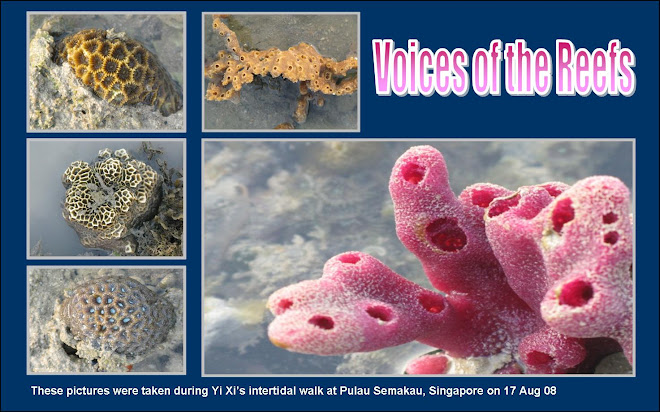Everyone can help in the conservation of coral reefs! Here are some things that you can do:
Educate yourself about coral reefs and the creatures they support. With enough knowledge, you can help others understand the fragility and value of the world’s coral reefs.
Make sure that sewage in you living area is correctly treated. Excessive nutrients in waste water can negatively impact coral reef ecosystems.
Don’t use chemically enhanced pesticides and fertilizers. Although you may live a long way from a coral reef ecosystem, these products end up in the watershed -- the area that drains to a common waterway, such as a stream, or a lake, and ultimately, the ocean.
Be an informed consumer. Only buy marine fish and other reef organisms when you know they have been collected in an ecologically sound manner.
Recycle. This helps keep trash out of the oceans and also out of landfills where it can have an adverse impact on the water quality of our rivers and oceans.
Conserve water. The less water you use, the less runoff and waste water eventually find their ways back into the oceans.
Carry away the trash that others have left behind. Beach litter poses a significant threat to the health and survival of marine organisms, which can swallow or get tangled in plastic containers, plastic bags, Styrofoam boxes, and other debris.
Report dumping or other illegal activities. Help be the eyes and ears of the reef!
Consider visiting a coral reef on a vacation. Spend some time enjoying the beauty of one of the world’s treasures while helping to preserve it for future generations.
Do not touch the marine life. Take only pictures. Keep your hands away from the reef, as the marine life can hurt you and you will also damage the delicate coral animals. Stay off the bottom because disturbed sediments can smother the corals.
Respect local guidelines when you visit a reef. Help keep coral reefs healthy by respecting local customs, recommendations, and regulations.
Stay informed regularly. Find out about existing and proposed laws, programs, and projects that could affect the world’s coral reefs.
Support organizations that protect coral reefs. Your support can make a big difference! E.g., You can go for intertidal walks at our Singapore islands, participate in the coastal clean-up efforts, go for talks, volunteer etc.
Spread the word. Share your own excitement at learning the value and importance of coral reef ecosystems. This gets everyone involved!
Educate yourself about coral reefs and the creatures they support. With enough knowledge, you can help others understand the fragility and value of the world’s coral reefs.
Make sure that sewage in you living area is correctly treated. Excessive nutrients in waste water can negatively impact coral reef ecosystems.
Don’t use chemically enhanced pesticides and fertilizers. Although you may live a long way from a coral reef ecosystem, these products end up in the watershed -- the area that drains to a common waterway, such as a stream, or a lake, and ultimately, the ocean.
Be an informed consumer. Only buy marine fish and other reef organisms when you know they have been collected in an ecologically sound manner.
Recycle. This helps keep trash out of the oceans and also out of landfills where it can have an adverse impact on the water quality of our rivers and oceans.
Conserve water. The less water you use, the less runoff and waste water eventually find their ways back into the oceans.
Carry away the trash that others have left behind. Beach litter poses a significant threat to the health and survival of marine organisms, which can swallow or get tangled in plastic containers, plastic bags, Styrofoam boxes, and other debris.
Report dumping or other illegal activities. Help be the eyes and ears of the reef!
Consider visiting a coral reef on a vacation. Spend some time enjoying the beauty of one of the world’s treasures while helping to preserve it for future generations.
Do not touch the marine life. Take only pictures. Keep your hands away from the reef, as the marine life can hurt you and you will also damage the delicate coral animals. Stay off the bottom because disturbed sediments can smother the corals.
Respect local guidelines when you visit a reef. Help keep coral reefs healthy by respecting local customs, recommendations, and regulations.
Stay informed regularly. Find out about existing and proposed laws, programs, and projects that could affect the world’s coral reefs.
Support organizations that protect coral reefs. Your support can make a big difference! E.g., You can go for intertidal walks at our Singapore islands, participate in the coastal clean-up efforts, go for talks, volunteer etc.
Spread the word. Share your own excitement at learning the value and importance of coral reef ecosystems. This gets everyone involved!




1 comment:
Thanks! I will certainly do my part and do whatever I can to save the reefs! :)
Post a Comment